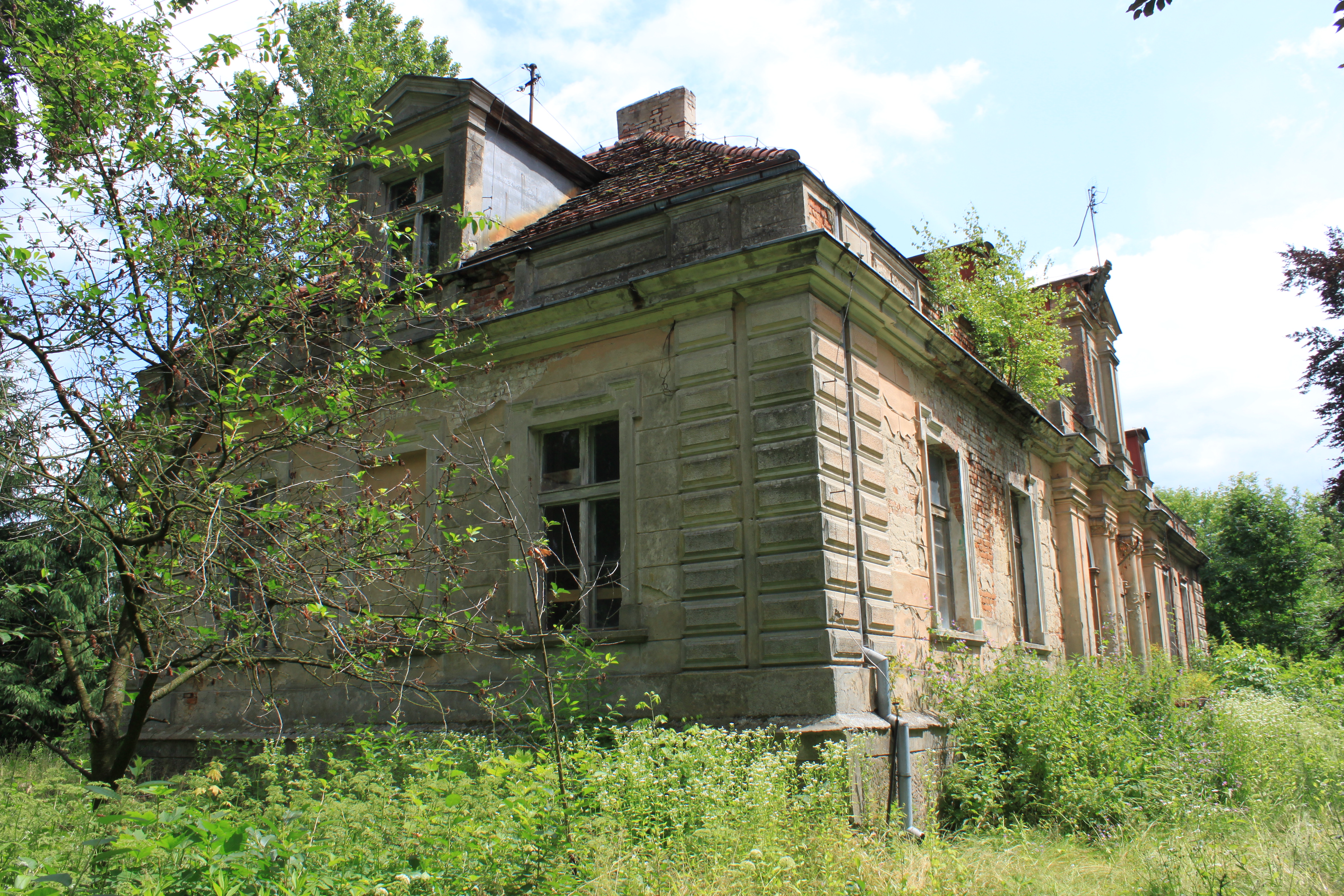ЕҒДҷkanГіw on:
[Wikipedia]
[Google]
[Amazon]
ЕҒДҷkanГіw is a village in the administrative district of
 From the 14th century, the village has been known under various names, which included Lankanow and Lanka. Before World War II, the village was called Lanken and was part of the German district of Lower Silesia and property of Counts of Schlabrendorf, who had a majorat in the palace of Seppau, some 20 kilometers away. Between 1860 and 1945 the village served as an auxiliary residence of the counts, who had a manor house (referred to in German as ''Schloss'', meaning ''palace'' or ''castle'') built at the western outskirts of Lanken.
In 1945, borders shifted at the end of the war and the region became part of Poland. The name was changed to ЕҒДҷkanГіw and the Schlabrendorfs were expropriated. The manor was divided and parts of it were given to a collective farm run by the state. By the time communism collapsed in 1989, the manor house and outbuildings had been heavily transformed, with the manor house turned into apartments for collective farm staff.
A state-owned agency which owned the remnants of the manorвҖ”more than six hectares of land and buildingsвҖ”sold it in 2013 to a private owner who plans to restore the manor house to its 19th-century shape, renovate the outbuildings as well as rebuild ruined structures to house a hotel. Part of the property, in particular an 18th-century granary, will house a nonprofit cultural institution.
The manor in its entirety is a listed heritage site.
From the 14th century, the village has been known under various names, which included Lankanow and Lanka. Before World War II, the village was called Lanken and was part of the German district of Lower Silesia and property of Counts of Schlabrendorf, who had a majorat in the palace of Seppau, some 20 kilometers away. Between 1860 and 1945 the village served as an auxiliary residence of the counts, who had a manor house (referred to in German as ''Schloss'', meaning ''palace'' or ''castle'') built at the western outskirts of Lanken.
In 1945, borders shifted at the end of the war and the region became part of Poland. The name was changed to ЕҒДҷkanГіw and the Schlabrendorfs were expropriated. The manor was divided and parts of it were given to a collective farm run by the state. By the time communism collapsed in 1989, the manor house and outbuildings had been heavily transformed, with the manor house turned into apartments for collective farm staff.
A state-owned agency which owned the remnants of the manorвҖ”more than six hectares of land and buildingsвҖ”sold it in 2013 to a private owner who plans to restore the manor house to its 19th-century shape, renovate the outbuildings as well as rebuild ruined structures to house a hotel. Part of the property, in particular an 18th-century granary, will house a nonprofit cultural institution.
The manor in its entirety is a listed heritage site.
Gmina NiechlГіw
__NOTOC__
Gmina NiechlГіw is a rural gmina (administrative district) in GГіra County, Lower Silesian Voivodeship, in south-western Poland. Its seat is the village of NiechlГіw, which lies approximately west of GГіra and north-west of the regional ...
, within GГіra County, Lower Silesian Voivodeship
Lower Silesian Voivodeship, or Lower Silesia Province, in southwestern Poland, is one of the 16 voivodeships (provinces) into which Poland is divided. The voivodeship was created on 1 January 1999 out of the former WrocЕӮaw, Legnica, WaЕӮbrz ...
, in south-western Poland. Prior to 1945 it was in Germany
Germany,, officially the Federal Republic of Germany, is a country in Central Europe. It is the second most populous country in Europe after Russia, and the most populous member state of the European Union. Germany is situated betwe ...
.
It lies approximately north-west of GГіra, and north-west of the regional capital WrocЕӮaw
WrocЕӮaw (; german: Breslau, or . ; Silesian German: ''Brassel'') is a city in southwestern Poland and the largest city in the historical region of Silesia. It lies on the banks of the River Oder in the Silesian Lowlands of Central Europe, rou ...
.
History and landmarks
References
Villages in GГіra County {{GГіra-geo-stub